During the rainy season, the ancient Village of Tudui in Nixi Township, Shangri-La, is shrouded in mist, appearing dreamy and poetic like a Chinese ink painting. In the workshop of Master Sunuo Qilin, his son, Lu Zong Enzhu, is guiding several visitors from other provinces who have come to experience making black pottery by hand.
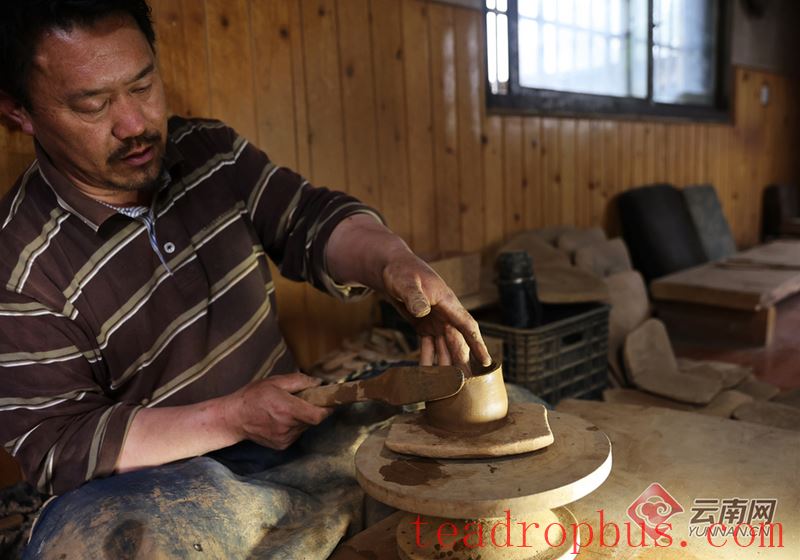
Lu Zong Enzhu is crafting a traditional Tea jar.
Taking an appropriate amount of clay, he kneads it repeatedly, flattens it into strips with a wooden board, measures it with a wooden ruler, and then cuts it into blocks using a wooden knife. Lu Zong Enzhu demonstrates these steps skillfully. After shaping the clay and gently patting it with a small wooden board, half an hour later, a lump of clay has become a small tea jar under his hands. “Now it needs several days to air-dry before it can be fired,” Lu Zong Enzhu explains that Nixi black pottery must go through more than a dozen processes to achieve its characteristic “black as lacquer, shiny as a mirror, hard as porcelain.”
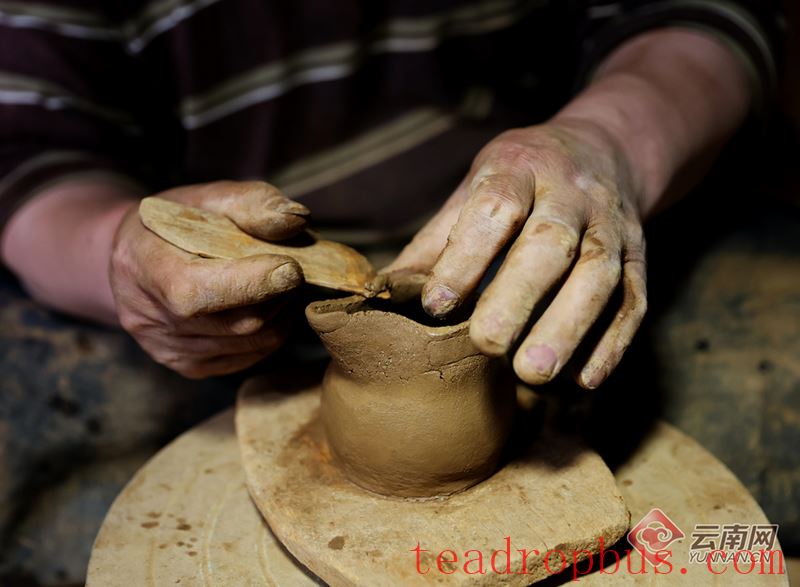
The initial shape takes form.
Lu Zong Enzhu's father, Sunuo Qilin, began learning the craft of black pottery at the age of eleven from his grandfather. For decades, he not only passed on this ancestral skill diligently to his four sons and grandson-in-law but also shared his knowledge generously with villagers and tourists who came seeking instruction. He also helped lead his fellow villagers onto a path of prosperity through black pottery.
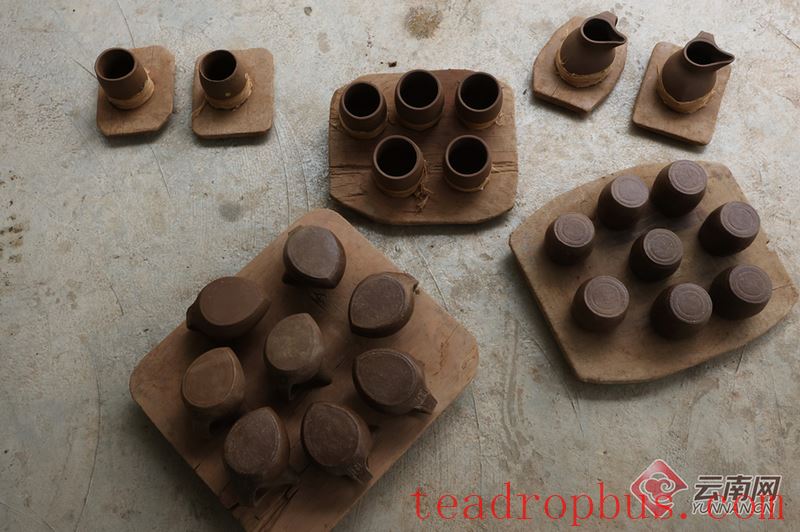
Air-drying after being shaped by hand.
Near the banks of the Jinsha River, Nixi Township was once a key stop along the ancient Tea Horse Road. The soil here is highly adhesive and malleable, making it ideal for pottery-making.
As early as the Spring and Autumn and Warring States periods, there was already a history of making and using black pottery in the Nixi area. Black pottery hot pots, fire basins, and tea jars have long been essential household items for local Tibetan people. Everyone says, “Dishes cooked in Nixi black pottery are especially fragrant.”
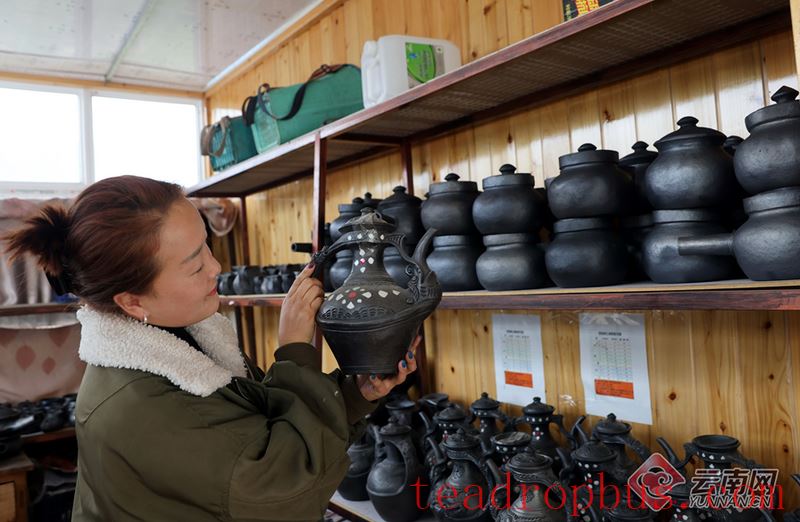
Sales points for Nixi black pottery can be found everywhere in the township.
“Local sourcing,” “purely handmade,” and “ground stacked firing” are unique characteristics of Nixi black pottery. From simple household utensils to exquisite ethnic handicrafts, through generations of inheritance and innovation, the craftsmanship has become increasingly refined, and the variety of products has expanded. However, Lu Zong Enzhu's family still retains traditional handcrafting and firing methods. Their black pottery crafts, which are both practical and possess a unique aesthetic, still retain a strong primitive style, showcasing the unique techniques of living fossils of pottery craftsmanship.
In June 2008, the Ceramic firing technique (Tibetan black pottery firing technique) was included in the second batch of national-level representative lists of intangible cultural heritage.
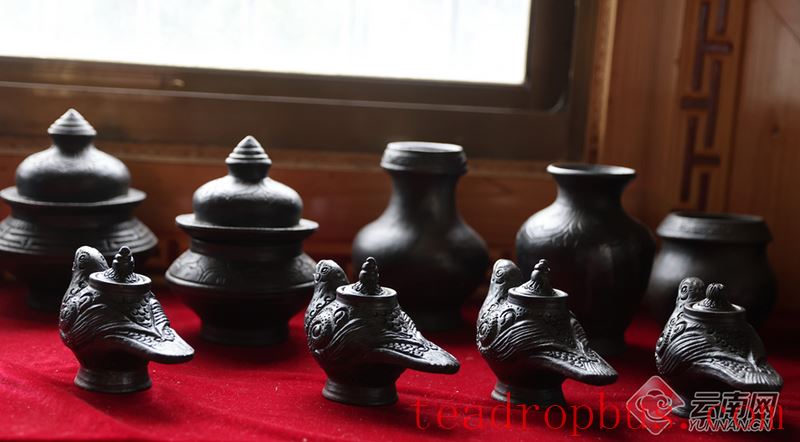
Nixi black pottery exudes a unique charm.
In 2009, Sunuo Qilin (deceased) was named a national-level representative inheritor of intangible cultural heritage. To date, Nixi Township has one national-level representative inheritor of Tibetan black pottery firing technique, one provincial-level representative inheritor, three prefecture-level representatives, and three city-level representatives. The number of households producing black pottery in the township has increased from over 40 to 108, and the number of people engaged in the industry has grown from 45 to over 150. The range of black pottery products has expanded from simple earthenware pots, jars, and fire basins to over 80 types, including vases, cups, and Coffee mugs, with marketing channels covering the entire country. In 2025, annual sales revenue reached approximately 4.6 million yuan, becoming a genuine pillar industry for Nixi Township.
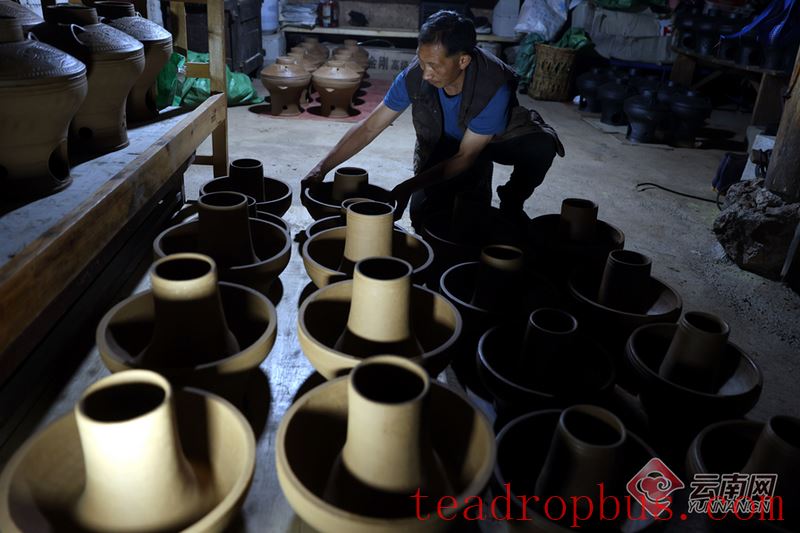
Nixi black pottery undergoing air-drying at a potter's home.
The once common Nixi black pottery, now marked by the imprint of “intangible cultural heritage,” has gained even greater renown, stepping out from Shangri-La towards the world.
The ancient Nixi black pottery, reborn from the flames, is flourishing with renewed vitality, writing a new chapter of glory along the ancient Tea Horse Road.